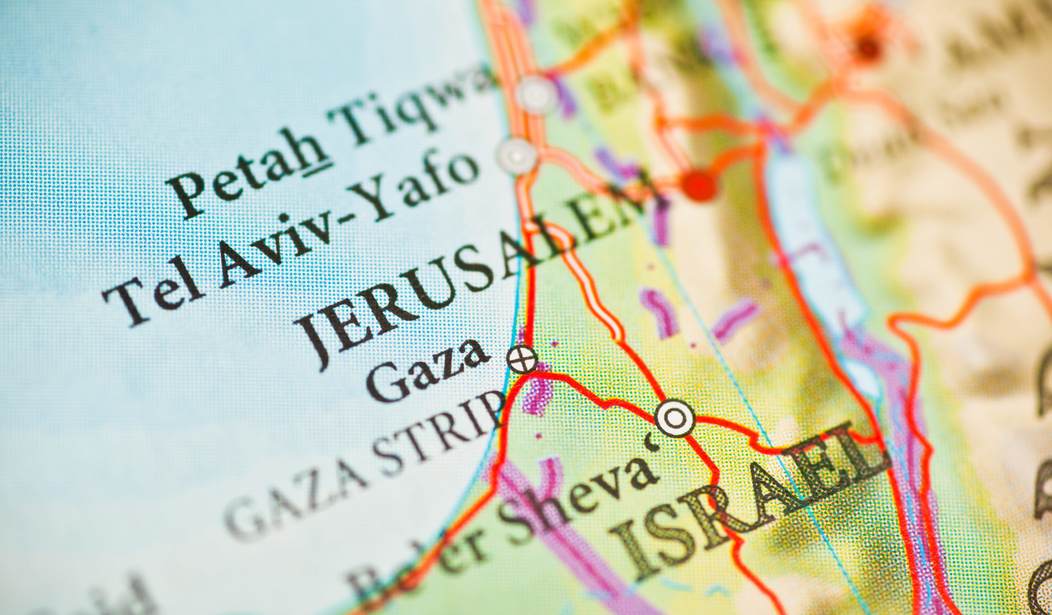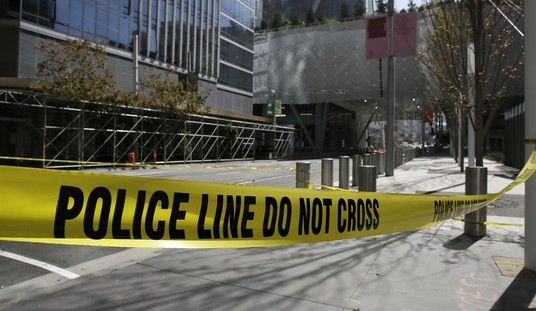On Saturday night, while yet another jihadist was terrorizing Paris, people all over Europe were tuned in to the Eurovision Song Contest, an annual display of the depressingly low level to which the quality of popular music has descended. First broadcast in 1956, Eurovision gave the world such songs as ABBA’s “Waterloo” (which won in 1974) and – um – did I mention “Waterloo”?
Seriously, the music wasn’t always so bad. During its early years, the competition was something of a cultural smorgåsbord, with songs sung in native languages and in accordance with national musical traditions. If you’re old enough, you’ll probably remember the Eurovision entries “Volare” and “Al Di La” and “L’amour est bleu.” There were nice ballads and cute novelty numbers.
Over time, however, more and more of the songs were all but interchangeable U.S.- and UK-influenced pop and dance tunes, increasingly sung in English. Among the memorable titles: “Boom Bang-a-Bang” and “Diggi-Loo Diggi-Ley.” By degrees, songwriting gave way to spectacle. The whole thing had started off as a competition among composers and lyrics, but now the singer was the star. In the first few decades, at least one person onstage needed to be playing a musical instrument; nowadays, believe it or not, that’s totally prohibited. Any number of back-up dancers, acrobats, lighting effects, explosive devices, etc., etc., are permitted, but the singer or singers are required to sing to a pre-recorded track, just like at a karaoke bar.
After the Iron Curtain fell, Eastern European countries not only joined NATO and EU – they were swallowed up into the madness of Eurovision. For several years, many of their entries were even worse than the crap from Western Europe – illuminating the sober fact that Communism had produced even more appalling notions of popular music than capitalism had. One measure of the gradual adaptation of Eastern Europe to Western culture has been that the entries from countries like Moldova and Estonia are now, by and large, indistinguishable from the entries from France and Sweden.
To be sure, though the musical quality has steadily declined, every now and then a Eurovision song turns out to be actually melodic, capable of being remembered for at least two or three minutes into the next song. Last year there was actually a very pretty – dare I say haunting? – song, “Amar Pelos Dois,” that was performed by Salvador Sobral of Portugal. In a shocking departure from tradition, the best tune ended up winning.
Every year the contest takes place in the country that won the year before. So this past Saturday night, the Eurovision program was broadcast live from Lisbon. As always, the giant auditorium was packed to the rafters. One presumes that the TV audience was also huge. Why, you may wonder, do people watch this train wreck? Some of them, disturbing though it may be to contemplate, actually like the music. Many others, however, watch out of habit, the way some Americans still watch the Oscars even though they haven’t seen any of the movies and wouldn’t do so with a gun put to their head. Still others use it as an occasion to buy champagne and hold a party. It’s kitsch. It’s camp.
Then there are those of us who watch it for the same reason we enjoy sitting through a bad movie with friends – so we can make fun of it along the way. And boy, is there plenty about Eurovision to make fun of. First of all, the hosts are always local superstars who see this as their big chance to make it internationally. They always speak bad English, tell versions of the same feeble jokes, and hold excruciatingly awkward interviews, also in bad English, with the contestants and audience members. On Saturday night, one guy in the audience was waving a huge Dutch flag and had the Dutch flag drawn on his forehead and both cheeks – and so naturally one of the four mistresses of ceremonies asked him: “Which country are you from?”
At the end of the broadcast, the hosts take video calls from other local superstars all over Europe – not excluding the most important TV guy in San Marino – whose job is to present the vote of their national juries: “Hello, Lisbon, this is Ljubljana calling!” The default move of the national TV broadcasting enterprises is to give this job to some stunning young woman in a knockout of a dress – thereby affording the viewer an opportunity to speculate as to how she, and not some other stunning young woman, happened to be selected for the honor. On the other hand, the vote-readers from one or two Eastern countries are scary-looking characters of a certain age who, one suspects, have been members of the nomenklatura ever since the good old days of purges and show trials. “This one looks like he’s involved in human trafficking,” I said when one such thuggish type read out his country’s vote. “This one could be the bad guy in one of the Taken movies,” I commented about another.
Because of the steady rise in terrorist acts across Europe, there’s now a high level of security at these shows – supposedly. This year, however, during the performance by the UK songstress, who spells her professional name SuRie, a guy rushed the stage, grabbed her mike, accused Britain’s media establishment of being Nazis, and demanded greater freedom of speech. He was not immediately identified. It seemed very unlikely to me that this rowdy could have any connection to the orderly “Day for Freedom” rally that took place in London the other day, and that communicated an urgent message about Britain’s ongoing crackdown on critics of Islam (which eventuated, just a few days ago, in a proposal by the ominously named Sentencing Council for England and Wales that online criticism of a religion be punished by up to six years in prison). On Sunday came the news that the troublemaker was a fellow named Konstantin whose nom de guerre is “Dr. ACactivism” and who is a fervent supporter of socialist Labour Party boss Jeremy Corbin and of Cuban Communism.
In any case, this interruption didn’t throw the proceedings off for long. And besides, if you want to talk about freedom and Islam, that’s one conflict that Eurovision, by its very nature, already addresses. Music is a defiance of Islam. So is fun. (Ayatollah Khomeini: “There are no jokes in Islam. There is no humor in Islam. There is no fun in Islam.”) A great many of the lyrics and outfits would be verboten under sharia or any other tyrannical set of laws. (As it happens, Eurovision is aired in China, but this year two songs on the show were censored there: one because it’s about same-sex romance, the other, curiously, because the singer had tattoos, which are apparently banned from Chinese TV. Who knew?) The annual inclusion of Israel, but not any of its neighbors, in the spectacle only underscores that country’s status as an oasis of freedom in a desert of Islamic autocracy.
There’s one truly nice thing about Eurovision: the flags. This is the only big annual event in Europe at which people feel free to wave their countries’ flags. At any other time, doing such a thing would be considered nationalistic. Not at Eurovision. The honchos in Brussels, of course, are desperate to instill a feeling of European identity in the people of Europe, and to get them to wave that blue EU rag with its yellow circle of stars, but I didn’t see a single one of those things in the audience in Lisbon. It’s true: nobody has an emotional attachment to that piece of cloth.
As noted, in addition to most of the countries in Europe, Eurovision has long included Israel, and, since 2015, oddly enough, Australia. As it happened, this year’s trophy went to a song from Israel. That’s an important sign. Western Europe’s elites are increasingly rife with anti-Semitism – that’s a fact. But you’d never know it from watching the Lisbon audience’s reaction to this year’s Israeli performer, Netta Barzilai. They cheered her. And then people all over Europe voted for her, over all 25 of the other contestants.
Not that her song was a masterpiece, either: it was quite horrible, though not much more horrible than most of the others. Were at least some European voters making a political statement – reacting to their continent’s fearful Islamization by giving a thumbs-up to the Jewish state? In any event, when Barzilai was handed the microphone so that she could say a few words about her victory, she pronounced it a triumph for “differentness” and “diversity.” Ugh. But she redeemed herself with her next words. “I love my country!” she shouted, and added: “Next time in Jerusalem!” Cheers all around. That last bit took me by surprise. In fact it stopped my sarcastic riff in medias res and choked me up.
When, I wondered, had I last heard anyone in Europe say “I love my country”? After all, that’s dumb stuff – unsophisicated, un-European, downright corny. American! It’s Trump rhetoric, MAGA sloganeering – or that’s what our betters expect us to think. But as much as some Brussels technocrats would love to see Eurovision grease the way to the total integration of Europe, the absolute elimination of national boundaries, and the replacement of parliamentary democracies with an undemocratic superstate, those hundreds of flags at that Lisbon auditorium, and those beautifully simple patriotic words from Barzilai, testified to the fact that Eurovision, at its heart, remains what it was in 1956: a friendly gathering of people from different nations cheering on their countrymen. And it suggested that Europe, perhaps more than we dare hope, still retains its love of nation and its contempt for autocracies of any kind, whether based in Brussels or on the Koran. Saturday night was not, then, a great night for music, but it was a very good night for European national identity – and a fine overture to what we can all hope will be a historic week for the State of Israel.









Join the conversation as a VIP Member